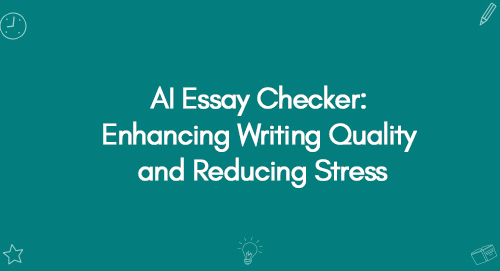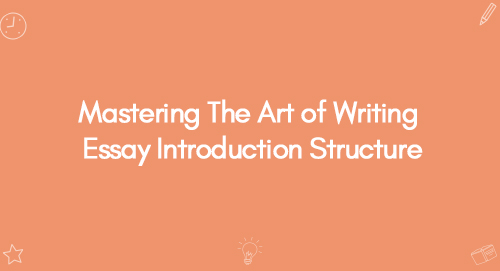Psychology Essay Example | Good Examples and Pro Tips 2024
Psychology Essay Example | Good Examples and Pro Tips 2024

How to Write an Analytical Essay | An Ultimate Guide
May 2, 2024
How to Write a Psychology Essay | Everything You Need to Know
May 6, 2024A psychology essay is a written academic work that explores and analyzes various aspects of human behaviour and psychological phenomena. These essays apply concepts, and research findings from psychology to examine issues within the field.
Learn How to Write Write a Discursive Essay
This essay offers valuable insights for psychology students. Through two examples, it illustrates the integration of theory, research findings, and critical analysis to address significant topics within the field of psychology. Additionally, the essay provides pro tips for writing a successful psychology essay.
You may also like to review
Example: 1 Critical Evaluation Essay Example
Example: 2 Discursive Essay Examples
Psychology Essay Examples
The examples below illustrate the application of psychological principles and research findings in addressing significant topics within the psychology field.
A Distinctive Psychology Essay Example
This example delves into the influential role of Piaget's theory of cognitive development in understanding how children learn and develop. This essay highlighted the enduring relevance of Piaget's contributions to psychology.
Title: The Role of Piaget's Theory of Cognitive Development in Understanding Children's Learning
Introduction
Understanding how children learn and develop cognitively is a fundamental aspect of psychology. Jean Piaget's theory of cognitive development has been influential in shaping our understanding of how children acquire knowledge and understanding of the world around them. Piaget proposed four stages of cognitive development: the sensorimotor stage, preoperational stage, concrete operational stage, and formal operational stage. At the core of Piaget's theory are key concepts such as schema, assimilation, accommodation, and equilibration. These concepts describe how children actively construct their understanding of the world through their interactions with the environment.
Body Paragraph
Piaget's theory has significant implications for understanding children's learning processes. According to Piaget, children progress through these stages sequentially, with each stage building upon the previous one. For example, in the sensorimotor stage, infants learn through their senses and actions, while in the preoperational stage, children begin to develop symbolic thinking and language skills. The concrete operational stage is characterized by the ability to think logically about concrete events, while the formal operational stage marks the ability to think abstractly and hypothetically. Piaget's theory suggests that children's cognitive development influences their learning strategies and problem-solving abilities as they progress through these stages.
Body Paragraph 2
However, Piaget's theory has not been without criticism. Some scholars have questioned the universality of Piaget's stages, arguing that they may not apply equally to all children across cultures and contexts. Additionally, critics have highlighted the role of cultural and social factors in shaping cognitive development, which Piaget's theory may not adequately address. Despite these criticisms, Piaget's theory remains a foundational framework for understanding cognitive development, providing valuable insights into children's learning processes.
Body Paragraph 3
Contemporary research in cognitive development has both supported and extended Piaget's ideas. Recent studies have provided evidence for the sequential nature of cognitive development, validating Piaget's stage theory. However, researchers have also identified limitations and refinements to Piaget's theory, such as the importance of social interaction and cultural context in shaping cognitive development. By integrating Piaget's theory with contemporary research findings, psychologists can continue to refine our understanding of how children learn and develop cognitively, ultimately contributing to the advancement of the field of psychology.
Conclusion
In conclusion, Piaget's theory of cognitive development remains a significant framework for understanding children's learning processes. While it has faced criticism and challenges, its foundational concepts continue to shape our understanding of cognitive development. By incorporating insights from contemporary research, we can further enhance our understanding of how children learn and develop, ultimately contributing to the broader field of psychology.

Another Psychology Essay Example
This psychology essay example demonstrates how to structure a psychology essay on a specific topic, providing a comprehensive analysis supported by relevant research findings.
Title: The Effects of Stress on Mental Health
Introduction
In today's fast-paced world, stress has become an inevitable part of daily life for many individuals. This essay examines the psychological effects of stress on mental health, exploring its impact on cognition, emotion, and behaviour. Understanding how stress influences mental well-being is crucial for developing effective interventions to mitigate its negative consequences.
Body Paragraphs
Cognitive Effects of Stress
Stress can impair cognitive function, affecting attention, memory, and decision-making processes. Research indicates that chronic stress can lead to difficulties in concentrating, processing information, and problem-solving. Additionally, prolonged exposure to stress hormones such as cortisol may alter brain structure and function, contributing to cognitive decline over time.
Emotional Impact of Stress
Stress has profound effects on emotional regulation, leading to increased levels of anxiety, depression, and mood disturbances. Individuals experiencing chronic stress may exhibit heightened emotional reactivity, irritability, and feelings of helplessness. Moreover, prolonged stress exposure can disrupt the balance of neurotransmitters in the brain, further exacerbating emotional instability.
Behavioral Responses to Stress
Stress often triggers maladaptive coping behaviours, such as substance abuse, overeating, or social withdrawal, as individuals seek to alleviate distress. These behaviours can perpetuate a cycle of stress and negative health outcomes, including obesity, addiction, and social isolation. Understanding the underlying mechanisms driving these behavioural responses is essential for developing effective stress management strategies.
Protective Factors and Resilience
While stress can have detrimental effects on mental health, individuals vary in their susceptibility to its impact. Protective factors such as social support, coping skills, and resilience play a crucial role in buffering against the negative effects of stress. Research suggests that fostering resilience through interventions such as cognitive-behavioural therapy and mindfulness training can enhance psychological well-being and promote adaptive coping strategies.
Conclusion
In conclusion, stress exerts a significant influence on mental health, affecting cognition, emotion, and behaviour. By understanding the cognitive, emotional, and behavioural mechanisms underlying the effects of stress, psychologists can develop targeted interventions to mitigate its negative consequences. Promoting resilience and fostering adaptive coping strategies are essential components of effective stress management. Ultimately, addressing the psychological impact of stress is vital for promoting overall mental well-being in individuals and communities.
Pro Tips 2024 for Writing Psychology Essay
Utilizing these tips can help you write a well-organized and persuasive psychology essay that effectively communicates your ideas and insights in the field of psychology. Here are some tips to help you craft a successful psychology essay.
- Understand the Assignment
The essay question or assignment instructions must be studied before you start writing. Consider any additional requirements like page number, citation approach (APA, MLA etc.), and the topic of the essay.
- Choose a Clear Topic
Choose a topic for your essay which is coherent and consistent. You may want to select a topic that motivates you and is relevant to what you know and understand in psychology. To ensure that your essay remains focused and manageable, focus on limiting the scope of your topic.
- Conduct Thorough Research
Find relevant sources, such as scholarly articles, books and credible websites to substantiate your arguments and claims. Be sure that all your arguments have the most recent and well-credible sources. As you carry out the research, take precise notes to organize your thoughts and develop ideas effectively.
- Develop a Strong Thesis Statement
Then write a short and precise introductory sentence to inform the reader about your thesis statement, stating what will be covered in your essay. This is because the thesis statement should be arguable and there must be research that is done that supports points.
- Outline Your Essay
If you haven’t developed a strong organization of ideas within the essay outline, prepare an outline that will clearly show your key points and provide their developmental structure to build strategies for structuring the essay. Separate each section of your essay with the introduction, body paragraphs and conclusion sectors. Each section will discuss various points and arguments, and just give an outline of the same main being each section.
- Write Clear Paragraphs in a Psychology Essay Example
In each paragraph avoid mixed argumentation and provide evidence to support your main idea. In each paragraph, a focus sentence which introduces the central idea should at least be given. Modify paragraphs to ensure that ideas flow smoothly and make the transition between paragraphs.
- Support Your Arguments with Evidence
Back up your arguments and claims with facts, research, stories of case studies or practical illustrations. Analyze the presented evidence and evaluate its applicability and significance. Rely explicitly on the sources by providing citations according to the standard citation style.
- Engage with Psychological Theories and Concepts
Illustrate your knowledge of some psychological theories, concepts, and principles that relate to the object of your study.
- Consider Alternative Perspectives
It is important to comment upon and respond to any alternative viewpoints or counter-arguments found in your essay. With opposing arguments, critically reflect on how comparative strengths and weaknesses can affect your decision.
- Revise and Edit Carefully
Reread your paper to ensure that coherence and inconsistencies in your essay are acceptable. Make sure that in your writing the presentation is clear and precise, free of grammar and spelling mistakes. It is advisable to ensure that you use a peer, your tutor or any other available learner as the best possible option when looking to get feedback on the essay before submission.
Free Premier Essay Writing Topics
Essay Writing is an essential part of academics which presents the ideas, arguments, opinions, or positions of the writer regarding the topic. The writer supports his claims using facts, evidence, or survey studies.
- Clear presentation or understanding of the type of essay
- An appealing introduction with an unambiguous thesis statement
- A well-defined structure of body paragraphs supporting the thesis
A prospective conclusion with an optimistic tone
Conclusion
Writing a psychology essay requires a combination of critical thinking, analytical skills, and adherence to academic standards. By applying the principles outlined in the examples and pro tips, students can craft engaging and informative essays that contribute to the ongoing discourse and advancement of psychology as a discipline.



















